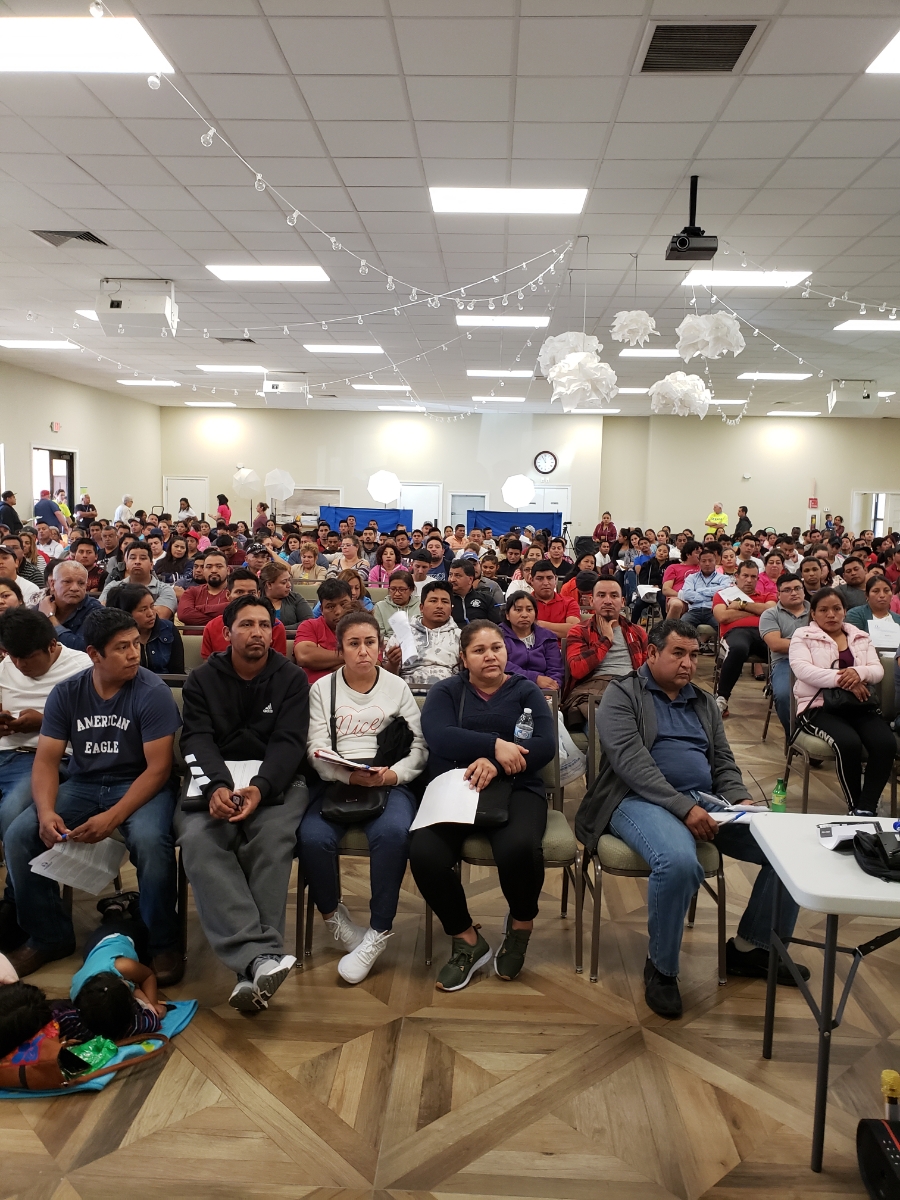By Wayne Washington, Palm Beach Post
Supporters of Palm Beach County’s Community ID Program are scrambling to find new funding after a recently passed state law bars local governments from underwriting it.
The program, started in 2019, has issued or renewed more than 4,000 identifications to undocumented people, who use them to access health care, enter gated communities or libraries and open bank accounts, according to People Engaged in Active Community Efforts, a coalition of ministries that advocates on behalf of the poor and undocumented people.
West Palm Beach provided the initial funding for the program, and Palm Beach County has chipped in to underwrite it in recent years.
But local governments will no longer be allowed to pay for such programs going forward.
Paige Shortsleeves, a lead organizer for PEACE, said the Legal Aid Society of Palm Beach County, which administers the Community ID Program, is looking for other sources of funding.
“We know there’s grant opportunities and things like that,” Shortsleeves said. “That’s what we’re looking at.”
Shortsleeves said PEACE and Legal Aid are checking with officials in Broward and Miami-Dade counties to see how they cope with funding losses for their community ID programs.
“That’s the million dollar question,” she said. “That’s what we’re trying to figure out.”
Legislation passed in Florida targets undocumented people
Senate Bill 1718, signed into law by Gov. Ron DeSantis on May 10, kills local government funding for community ID programs and targets undocumented people in other ways, including by invalidating driver licenses they hold from other states, increasing funding for Florida’s efforts to ship undocumented people out of the state and by requiring that hospitals receiving Medicaid funding ask patients for their immigration status.
PEACE officials and other immigrant advocates say the changes push undocumented people further into the shadows and increase the risk that they won’t seek health care or law enforcement for fear of being detained and deported.
Supporters of measures like 1718 argue that community IDs serve as tacit encouragement to people who have entered the United States illegally.
The issue is a political flashpoint, and DeSantis, now a candidate for president, has tapped into the anti-illegal immigration anger that animates many in the GOP. He was quick to use the new law as a cudgel against President Joe Biden, whom he and other GOP figures claim has exacerbated the problem of illegal immigration.
“The Biden Border Crisis has wreaked havoc across the United States and has put Americans in danger,” DeSantis said. “In Florida, we will not stand idly by while the federal government abandons its lawful duties to protect our country. The legislation I signed today gives Florida the most ambitious anti-illegal immigration laws in the country, fighting back against reckless federal government policies and ensuring the Florida taxpayers are not footing the bill for illegal immigration.”
Illegal immigration pre-dates the Biden presidency and is generally tied to poverty, crime and political instability in other nations as well as by economic conditions in the U.S.
PEACE says new law steals ‘dignity of those created in God’s image’
Democrats argue that Republicans are more interested in scoring political points on the issue than in supporting federal legislation to address it.
PEACE says the new law in Florida is an attempt to “steal the dignity and freedom of those created in God’s image and replace it with fear.”
Opposition to the new law is growing.
Some Latino truck drivers have said they will not deliver goods to the Sunshine State. Other businesses and groups have called for a boycott of the state.
While illegal immigration energizes many Republican voters, the construction, hospitality and agricultural industries — all critically important in Florida — rely on migrant laborers, who take on many jobs native-born Americans don’t want.
Despite that reliance, border state Republican officials have made clear their disdain for undocumented people, shipping often-confused and desperate people to Democratic-led cities in splashy political operations.
Florida does not share a border with Mexico, through which most of those who cross the southern U.S. border have traveled. But that did not stop DeSantis from figuring out a way to send immigrants to Democratic-led areas.
In September, the governor spent Florida tax money to send immigrants from Texas to Massachusetts, a move critics decried as cruel and possibly illegal.
SB 1718 gives DeSantis more state money for other such operations.
Community IDs aren’t driver’s licenses
For PEACE, the new law is a moral affront as well as an economic broadside.
“This bill is fundamentally against our different faith values and beliefs that say to love your neighbor as yourself and to welcome the stranger,” the group declared in a statement of opposition to the law.
“It is especially disheartening to see that Senate Bill 1718 prohibits local governments from funding community ID programs when this program has done so much good for our entire community without a single instance of fraud.”
PEACE noted that community IDs allow undocumented people to pick up children from school, access health care, open bank accounts and enter libraries or gated communities. They are not driver’s licenses.
In 2022, Palm Beach County chipped in $75,000 for a community ID program. The new law targets that funding and the funding other local governments have directed to ID programs for undocumented people.
Community IDs are a safety issue, PEACE says
PEACE said the Community ID Program of the Palm Beaches is still operating and the IDs it has issued are still valid.
The move to bar undocumented people from getting identification is a safety issue, PEACE stated.
“Without an ID, members of our community who have lived and worked here for years were being forced into theshadows,” the group said. “Not only is this inhumane, but it is unsafe. Many reported being afraid to call law enforcement when they were victims of crimes because they didn’t have an ID.
“These same individuals and families who sustain our economy by working the fields, landscaping our yards and cleaning our houses were being told they were essential workers during the pandemic — good enough to work, but not good enough to belong in our community.”
View the original story here.






